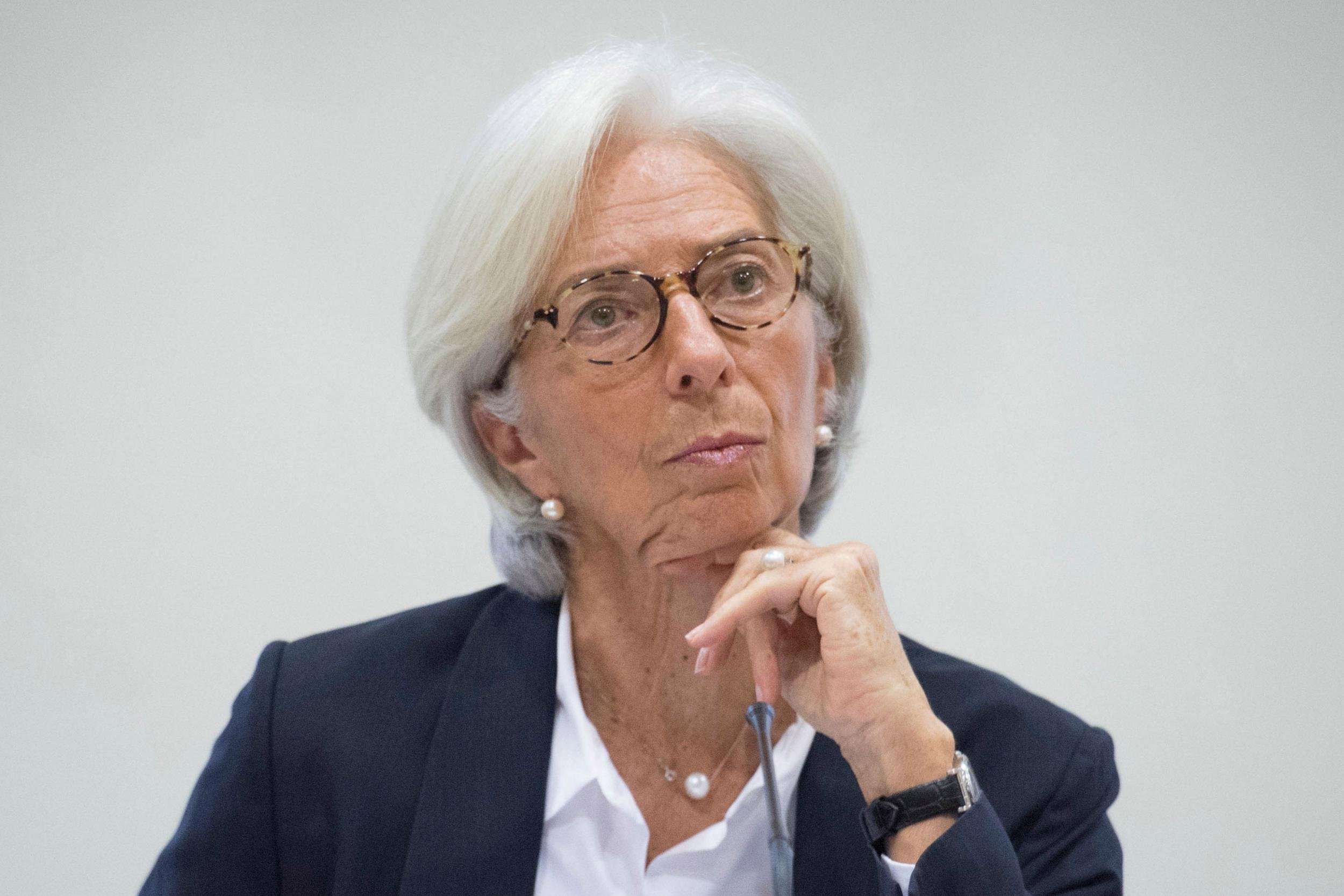The head of the International Monetary Fund (IMF), Christine Lagarde, has hit back at Brexiteers' claim that the organisation badly misjudged the economic impact of the referendum vote.
Speaking in London at the launch of the fund’s annual assessment of the UK economy, Ms Lagarde insisted the IMF’s pre-referendum warnings and forecasts had been broadly vindicated.
“Regrettably, the numbers that we are seeing the economy deliver today are actually proving the point we made a year and a half ago when people said you are too gloomy and you are one of those ‘experts’,” she said, in an apparent reference to Michael Gove’s claim that the British people have “had enough of experts”.
“Unfortunately we were not too gloomy – we were on pretty much on the mark,” Ms Lagarde said.
“Our forecast actually turned out to be the reality of the economy, which is one where sterling has depreciated, inflation has depreciated, wages have been squeezed as a result and investment has been slowed down and is certainly lower than we would expect it to be.”
In a document published shortly before the vote, the IMF forecasted that in a “limited” impact scenario for the Brexit vote (in which trade talks started smoothly), UK GDP growth would be reduced in 2017 from 2.2 per cent to 1.4 per cent and from 2.2 per cent to 1.8 per cent in 2018.
In its latest forecasts published on Wednesday the IMF has pencilled in 1.6 per cent growth in 2017 and 1.5 per cent for 2018.
What is true is that the fund’s latest 2017 forecasts for the UK are better than the 1 per cent GDP growth it was expecting in October 2016, reflecting the fact that growth did hold up better in the immediate wake of the Brexit vote than most economists had anticipated.
Ms Lagarde singled out the UK’s business investment performance this year as particularly disappointing, given the fact that the global economy is picking up speed.
Christine Lagarde says that Brexit has had a negative impact on the economy
“With the global economy as it is, and the space the UK has in it, it should be rolling at 6 per cent, [but] it’s at 2.1 per cent.”
The IMF’s June 2016 document had also included an “adverse” Brexit scenario in which the UK economy would contract in 2017 by 0.8 per cent and grow by just 0.6 per cent in 2018 – effectively a serious recession.
This was predicated on the UK’s EU negotiations collapsing and the UK eventually crashing out of the bloc without a trade deal.
Brexit bonhomie as May finally seals agreement with EU leaders
10 show all Brexit bonhomie as May finally seals agreement with EU leaders
1/10 Britain's Prime Minister Theresa May is welcomed by European Commission President Jean-Claude Juncker Reuters
2/10 EU President Jean-Claude Juncker greeting Theresa May at the EU Commission in Brussels PA
3/10 Britain's Prime Minister Theresa May poses for a picture with European Council President Donald Tusk REUTERS
4/10 EU Commission President Jean-Claude Juncker walks behind British Prime Minister Theresa May EPA
5/10 British Prime Minister Theresa May (L) and European Commission President Jean-Claude Juncker address a press conference at the European Commission in Brussels AFP/Getty Images
6/10 British Prime Minister Theresa May speaks at a press conference with EU Commission President Jean-Claude Juncker EPA
7/10 Britain's Secretary of State for Exiting the European Union, David Davis (L) and Michel Barnier (2-L), the European Chief Negotiator of the Task Force for the Preparation and Conduct of the Negotiations with the United Kingdom under Article 50 enter the room by the emergency exit to attend British Prime Minister Theresa May press briefing on Brexit Negotiations in Brussels. EPA
8/10 Britain's Secretary of State for Exiting the European Union David Davis (L), Britain's Prime Minister Theresa May (2-L), European Commission President Jean-Claude Juncker (2-R) and European Union's chief Brexit negotiator Michel Barnier (R) in a meeting on Friday morning AFP/Getty Images
9/10 European Union chief Brexit negotiator Michel Barnier speaks during a media conference at EU headquarters
10/10 European Council President Donald Tusk addresses a media conference at the Europa building in Brussels AP
In May 2016 Ms Lagarde had said that possible Brexit vote outcomes would range from “pretty bad to very, very bad”.
The IMF’s latest forecast suggests that the UK’s medium-term potential productivity growth is only 1.5 to 1.6 per cent, down from 2 to 2.25 per cent before the referendum.
It is understood that around half of this downgrade is attributable to Brexit, in the form of lower investment, weaker net immigration, less foreign direct investment and diminished trade.

HKBFG on December 21st, 2017 at 14:54 UTC »
why has "expert" come to be a negative?
Hikurac on December 21st, 2017 at 12:58 UTC »
You're not going to sway people's opinions by citing examples of the economy, when most leavers voted based on things other than the economy. To them, an economic downturn is just an unfortunate sacrifice that need be made in order to meet their goals.
Nullrasa on December 21st, 2017 at 12:31 UTC »
How did this idea of Brexit get started anyways?